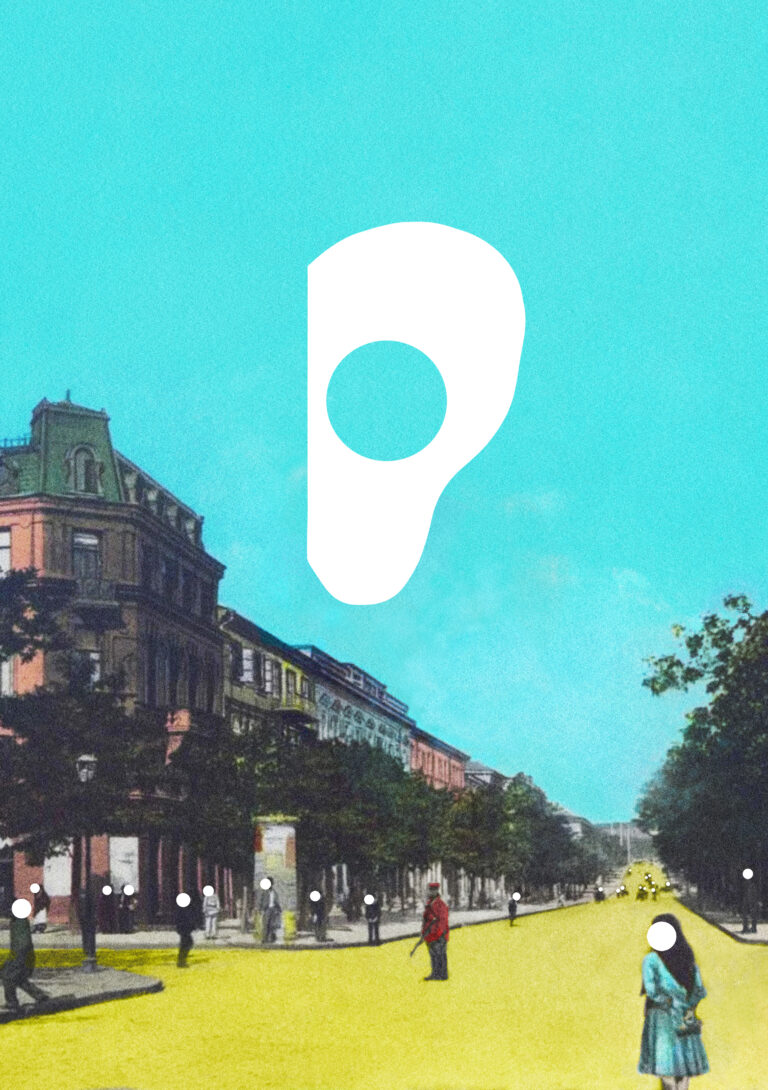Writers: Dead Centre & Zoe McWhinney. Adapted from the book by Ilya Kaminsky.
Directors: Bush Moukarzel & Ben Kidd
“That’s why we go to the theatre, to understand each other.”
Deaf Republic was staged in the Samuel Beckett Theatre for a short run as a part of the Dublin Theatre Festival. Dead Centre and Royal Court Theatre collaborate to bring an intense and thorough act of theatrical rebellion guided by Ilya Kaminsky’s poetry by the same name.
In the beginning, the stage is stripped bare as Romel Belcher and Caoimhe Coburn Gray step forward. Belcher signs in ISL (Irish sign language) while Coburn Gray vocally interprets through a microphone. Belcher takes on the role of Alfonso and bestows the role of Sonya onto Coburn Gray. There are hints of lighthearted tongue and cheek through this dual accessibility as Belcher apologises if Coburn Gray’s vocal interpreting is distracting and suggests ignoring her if it becomes too disrupting. When no vocal interpretation is given, surtitles appear on a screen above the stage. Belcher gives an introduction to the piece insinuating on how it will be expressed, comparing the broken English structure of ISL to poetry and questioning if theatre can be universally accessible or a way to further understand each other. The story that unravels is one broken down into chapters inspired by Ilya Kaminsky’s poetry, performed through multidisciplinary forms of puppetry, media and aerial.
Alfonso and Sonya perform puppet shows in the town but public gatherings are forbidden. During one performance a soldier pulls up and demands everyone leaves. When Petya, Sonya’s cousin, doesn’t move, the soldier identifies this as defiance and shoots him. The townspeople then explain that Petya was deaf and form a rebellion in solidarity, all appearing to be deaf. What follows is an array of events surrounding this incident, we visit Alfonso and Sonya’s home with their baby Anushka, their wedding pre-incident with Petya present, their death in the town square where Anushka is taken in by Gayla the owner of a local cabaret that is used as a pitfall for the opposing soldiers. Each segment enlightens the question – who pulls the strings in our society?
In mentioning these multiple settings, praise must be given to the production and stage management crew for their quick and seamless scene transitions. Although live cinema is projected during them to fill the gaps, the screen rises to present a transformed set every time. The ensemble keeps up with this by maintaining a consistent pace along with their individually powerful and diverse performances, making moments incredibly hard to watch yet very engaging. Praise to Kate Finnegan for her multi-disciplinary performance including a mesmerising aerial hoop sequence.
Deaf Republic has a rich awareness of itself through notions of meta-theatre. From the immediate audience address in Sonya and Alfonso’s introduction, to the constant reference of the play’s fictionality, to the exploration of puppetry on a small and large scale – it is an ambitious and viciously artistic representation of art imitating life. The bold presence of war and solidarity is something so significant to our society today. It encourages us to explore the meaning of this “deaf republic” beyond its representation of the deaf community and accessibility. Coercing Deaf communities to engage in hearing-based communication disregards their linguistic and cultural autonomy. This expands on not listening to the desires of our community, towards the various forms of communication our community uses and towards an individual or a country’s welfare. This is projected by the harrowing statement that if two sides can’t coincide, the clash of conflict is endless.
This idea of unending is maintained through this uninterrupted two hour performance that while constantly engaging could use a break for the process of content and lessen the pressure of scenery changes. There is an abundance of valid content to unpack from this production, the prologue of the piece enlightened this sense of using art as a form of societal empathy and understanding however with the intensity of duration and overuse of theatrics, there is a fear of weakening its overall impact.
Deaf Republic strives to empower the deaf community but also highlights the strength in cooperation. It is an amazing example of the limitlessness of theatre and a stunning representation of experimental accessible theatre where Dead Centre turned silence into resistance.
Reviewed 5th Oct 2025.

